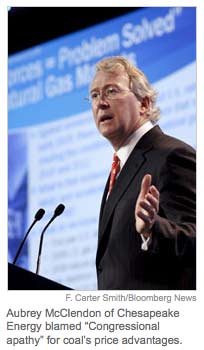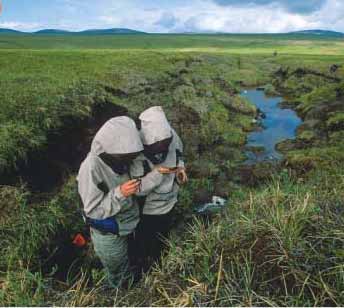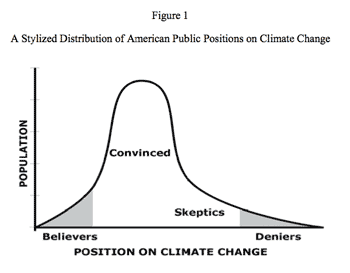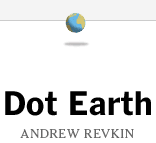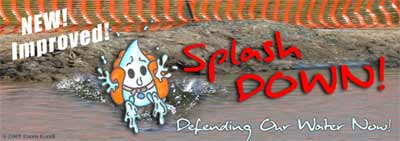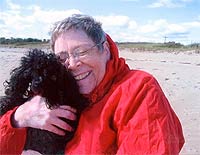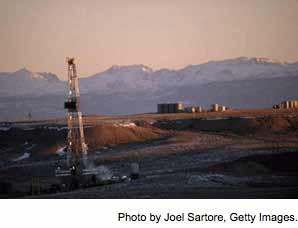Biblio
Good job Mr. Kunstler!
If you're offended by salty language, he may not be for you, but the tricks of Big Gas should offend you a whole helluva lot more.
The real story of what happened to the family in Texas that Ms. Stahl did not go into nearly enough. Fracking also reduced their land value from $257,330 on the 2010 tax rolls to its current value of $75,340.
--Vincent Alabama Confidential, outspoken Alabama political bloggers.
So, last night [2010-11-14] CBS hauled Aubrey McClendon, CEO of Chesapeake Energy, on board their flagship Sunday infotainment vehicle, 60 Minutes, to blow a mighty wind up America's ass (as they say in professional PR circles). America is lately addicted to lying to itself, and 60 Minutes has become the "go-to" patsy for funneling disinformation into an already hopelessly confused, wishful, delusional, US public.
McClendon told the credulous Leslie Stahl and the huge viewing audience that America "has two Saudi Arabia's of gas." Now, you know immediately that at least half the viewers misconstrued this statement to mean that we have two Saudi Arabia's of gasoline.
Translation: don't worry none about driving anywhere you like, or having to get some tiny little pansy-ass hybrid whatchamacallit car to do it in, and especially don't pay no attention to them "green" sumbitches on the sidelines trying to sell you some kind of peak oil story.... It also prepared the public to support whatever Mr. McClendon's company wants to do, because he says his company will free America from its slavery to OPEC. By the way, CBS never clarified these parts of the story by the end of the show.
Fossil fuels have powered human growth and ingenuity for centuries. Now that we're reaching the end of cheap and abundant oil and coal supplies, we're in for an exciting ride. While there's a real risk that we'll fall off a cliff, there's still time to control our transition to a post-carbon future.
See:Heinberg, Richard, and Daniel Lerch. The Post Carbon Reader: Managing the 21st Century's Sustainability Crises. 1st ed. University of California Press, 2010.
Music clip used in video below: Reed, Lou. Walk On The Wild Side (1972). RCA/BMG Heritage, 2002.
Post Carbon Institute provides individuals, communities, businesses, and governments with the resources needed to understand and respond to the interrelated economic, energy, and environmental crises that define the 21st century. We envision a world of resilient communities and re-localized economies that thrive within ecological bounds.
Climate change, the end of cheap fossil fuels, and our growth-dependent global economy are creating challenges of a scale and complexity never before seen. These unprecedented challenges call for wholly new approaches.
Post Carbon Institute has gathered 29 of the world's leading experts to point the way forward through a systems oriented, interdisciplinary, and collaborative approach. Through strong partnerships with the Transition Initiative movement and other leading innovators, we work to transform lives and communities through a powerful combination of integrated thinking and replicable direct action. These symbiotic relationships among on-the-ground leaders and grassroots organizers provide the opportunity to immediately implement and test generated ideas and strategies.
The Institute has developed a number of programs and initiatives that further its mission. Visit our program page to learn more.
See: Paul Tolme. 2010-05-14. National Wildlife Federation. "The Dirty Truth Behind Clean Natural Gas".
Flavin, C., and S. Kitasei. The Role of Natural Gas in a Low-Carbon Energy Economy. Briefing paper. Natural Gas and Sustainable Energy Initiative. Washington, D.C.: Worldwatch Institute, 2010. (PDF, 617kb)
Read this assessment by Robert W. Howarth, of Cornell University, who writes, "natural gas is far less attractive than other fossil fuels in terms of the consequences for global warming."
See: Natural Gas Drillers Protest Nomination of Fracking Critics for EPA Review Panel
Using the latest in satellite imagery, aerial photography, and Google Earth technology, this ten minute SkyTruth video explores the environmental impacts of gas and oil drilling in the Upper Green River Valley, an ecologically sensitve area of western Wyoming.
See the view of the Upper Green Valley in Wyoming from the air and the effect of hundreds of gas drilling well pads. According to SkyTruth, 10,000 well pads have been proposed.
As I see it, there are two incommensurate stories being told about climate change. I'm not talking about the largely fake debate between those who say climate change is happening and human-driven (scientists) and those who say it isn't (the GOP).
I'm talking about two different ways of envisioning what we can expect in a climate-changed future, both of which exist among people who take climate change seriously. Sometimes they take up residence in the same head! Like, er, mine. But they don't fit together very well. One comes to us from science, the other from economics.
...Getting clear on this is ultimately going to require a lot of progress in both science and economics. But for my part, when I see scientists panicking and economists telling me not to panic ... my palms start sweating.
...We are stumbling around in the dark, in an area where scientists tell us some very, very nasty beasties dwell. In that situation, it seems to me the overwhelming bias should be toward action -- getting lean, mean, and nimble enough to handle ourselves no matter what slouches our way.
See: EPA chief faces hostile House GOP
See: Beware The Green Dragon! | Right Wing Watch
See: Energy & Commerce Committee Investigates Potential Impacts of Hydraulic Fracturing
See also: Republicans ask court to toss climate case
Grist Staff Bio
David Roberts, Staff Writer
droberts@grist.org
206.876.2020 ext. 220
David was born and raised in the South. A revelatory summer working in Yellowstone National Park convinced him that it was not the world but just the part where he lived that sucked, so he moved out West. After several wayward years spent snowboarding and getting an MA in philosophy (go griz), he woke up with nothing but a dissertation between him and an arid, cloistered life spent debating minutiae with the world's other 12 Dewey scholars. So he bailed. A period was spent trudging through the swamp of Seattle tech work, wading past Amazon.com, IMDb.com, and Microsoft, before the fine folks at Grist fell for his devastating good looks in December 2003.
Virginia Smitske's son from Hickory PA narrates. Their water is tainted and government regulations have proven ineffective. They buy a lot of bottled water.
Here is a picture of the brown water. It's not always this brown, but its always full of toxins!
It's strange how people are so scared of the swine flu, but when you talk about how the gas drillers are poisoning our water, people think you're crazy, or they get mad because they think they can get rich off the deal the gas company is promising.
The money is more important to them than their health.
There’s more carbon locked up in the high north’s permafrost than the combined total released into the atmosphere by humans. The big melt going on right now in the Arctic could trigger a train of catastrophic events across the world.
The Arctic’s soil and permafrost hold nearly twice as much carbon as the earth’s atmosphere, dwarfing the amount of carbon emitted to date by burning fossil fuels. Since the industrial revolution our dependence on coal and oil has ratcheted up the atmosphere’s carbon content, from 560 to 760 gigatons. Permafrost holds an estimated 1,400 gigatons of carbon.
In addition to carbon dioxide, the frozen source is releasing methane, a greenhouse gas 25 times more potent, though it stays in the atmosphere for only a decade rather than for millennia. The gas is bubbling up from land and also from a large, previously overlooked source: permafrost submerged beneath the Arctic Ocean. It’s too early to say whether this is a newly observed steady leak, or if it signals the beginning of a flood of methane.
See: Arctic Thaw May Release Greenhouse Gases from Siberian Peat Bogs
Listening to climate change doubters, and not dismissing them, might avert a "logic schism" similar to the political stalemate on abortion, according to a new paper involving research on skeptics.
The paper (pdf) portrays doubters as being at a disadvantage. The majority of climate research comes from the fields of physical science, engineering and economics -- largely depicting rational outcomes in a world dominated by the view that the Earth is warming, and that something needs to be done about it.
What's missing, the research says, are studies that seek to understand the cultural responses of people who question those findings. It's no surprise, after all, that a large segment of humans resist the majority opinion -- on nearly every topic.
Most skeptical writers haven't accepted the scientific underpinnings of rising temperatures, while advocates for action are promoting policies to address the findings.
See: Global Warning | The environment and national security.
See: Hoffman, Andrew J. “Talking Past Each Other? Cultural Framing of Skeptical and Convinced Logics in the Climate Change Debate.” Ann Arbor 1001 (2011): 48109.
See: Kate. (Blog). ClimateSight | Climate Science and the Public. 2011.
Kate is a B.Sc. student and aspiring climatologist from the Canadian Prairies.
She became interested in climate science several years ago, and increasingly began to notice the discrepancies between scientific and public knowledge on climate change. She started writing [ClimateScience] when she was sixteen years old, simply to keep herself sane, but she hopes she’ll be able to spread accurate information far and wide while she does so.
A list of blogs by members of the Society of Environmental Journalists covering the environment.
The mission of the Society of Environmental Journalists is to strengthen the quality, reach and viability of journalism across all media to advance public understanding of environmental issues.
SEJ provides critical support to journalists of all media in their efforts to cover complex issues of the environment responsibly.
Society of Environmental Journalists Selected Blogs
Coal Tattoo
Ken Ward Jr. of The Charleston Gazette writes about mining's mark on our world.
How to Boil a Frog
Jon Cooksey's funny treatment of the Big Picture — global warming, peak oil, overpopulation, shrinking resources, income inequality — reflects the personal, populist tone and broad scope of his upcoming theatrical docu-comedy of the same name.
Andrew Revkin's Dot Earth and more.
New York Times man Revkin blogs at Dot Earth about climate change, the environment and sustainability; at Amazon on global warming; and also talks to kids via this NYT global warming website.
South Africa’s Cabinet endorsed the Department of Mineral Resources’ decision to declare a moratorium on natural-gas drilling in the Karoo region, halting plans by Royal Dutch Shell Plc (RDSA), Europe’s largest oil company.
The department will lead an investigation into the implications of hydraulic fracturing, or fracking, that will include assessing the environmental effects, government spokesman Jimmy Manyi told reporters in Pretoria today.
“Cabinet has made it very clear that a clean environment together with all the ecological aspects will not be compromised,” Manyi said. The cabinet is aware of the “urgency that is required in this respect,” he added.
Royal Dutch Shell applied for permission to drill about 24 wells in an area of about 90,000 square kilometers (34,749 square miles). The company faces opposition in the sheep- and game-farming region, an arid stretch across northwest South Africa, from the Treasure the Karoo Action Group, which fears environmental damage.
See: Aragom Eloff. Ivo Vegter vs. the Fracking Fringe. 2011-04-18.
See: Julienned DuToit. Fracking the Karoo - The People Say No! 2011-01-31.
See: Lewis Pugh. Frack Off, Shell!. 2011-04-05
See: Donald Paul. Drill Baby Drill. 2011-04-18.
Pennsylvania based blog covering many of the economic and ethical impacts of gas drilling for the people who are living with it.
We are among a group of property owners who have had the dual experience of receiving royalties from gas wells, then having our property rights seized for an underground natural gas storage field in the depleted gas wells.
This became a transformative two-year fight for our rights against eminent domain actions launched by Texas-based Spectra Energy Corporation, a natural gas storage company, and backed by the Federal Energy Regulatory Commission (FERC).
It is not a level playing field legally, economically or ethically for private property owners. Our fight led to the development of this website which focuses specifically on property rights that come under pressure from energy and utility companies.
See: Landman Report Card
Lively blog by Karen Korell that included over 340 items and 119 items that mention the word "landowners". For example, Google this phrase to see an index of all articles on Splashdown! that mention the word landownders:
<landowners site:http://splashdownpa.blogspot.com/ >.
Pennsylvania based website includes videos and activist anti-facking links.
Splashdown's author, Karen Korell, died August 30, 2010.
Updated frequently. (I will miss you. Neil Zusman 2010-09-11.) Pennsylvania based website includes videos and activist anti-facking links. Updated frequently. Passionate, opinionated and truthful.
See Splashdown posting by Chris Hedges, "Clean Energy and Poisoned Water", May 25, 2009.
Chris Hedges is a senior fellow at The Nation Institute in New York City. He spent nearly two decades as a foreign correspondent in Central America, the Middle East, Africa and the Balkans. He has reported from more than 50 countries and has worked for The Christian Science Monitor, National Public Radio, The Dallas Morning News and The New York Times, for which he was a foreign correspondent for 15 years. He is a columnist for Truthdig.
"New York state environmental officials announced Friday that they would impose far stricter regulations for a new type of natural gas drilling in the state’s only two unfiltered water supplies, making it highly unlikely that any drilling will be done in the Catskills watershed that supplies drinking water to New York City...
...Although they did not impose an outright ban, state officials said that any natural gas company would have to conduct a separate environmental impact review for every well it proposed to drill in either watershed. In other areas, companies would face a far less cumbersome permit process that would rely on the state’s own environmental assessment of where drilling can be allowed...
...With a major controversy surrounding the proposed drilling out of the way, state officials said that they expected to release their final regulations on hydraulic fracturing by the end of the year after considering more than 14,000 public comments.
While it stirred deep opposition in New York City and nearby counties, the drilling drew substantial support from many upstate residents who argued that the benefits would far outweigh any risks given the weakness of the economy.
The conservation department’s commissioner, Pete Grannis, said that landowners’ property rights had weighed heavily in the decision not to issue a ban on drilling in the two watersheds. He said that about 70 percent of watershed property is privately owned and that a ban would have undoubtedly brought on lawsuits from owners deprived of lucrative leasing deals with gas companies.
“At the end of the day, an outright ban risks very substantial litigation,” he said.
Instead, the department decided to add more scrutiny to any potential application to drill in the two areas, he said.
But while the well-by-well environmental reviews will be a deterrent to the drilling, environmental groups were not claiming victory. Kate Sinding, a senior attorney with the Natural Resources Defense Council, said nothing but a ban would ensure that gas companies do not exploit the watersheds in the future.
“If they get into the shale and find it productive, they’re going to knock on the door of the watershed,” she said. “This announcement puts off for another day a decision that could be made today"...
...Jim Smith, a spokesman for the Independent Oil and Gas Association of New York, called the state’s regulatory stance “excessive and unnecessary.”
...Deborah Goldberg, an attorney with Earthjustice, an environmental law firm, said the final SGEIS must include substantial changes to account for the cumulative effect of drilling thousands and perhaps tens of thousands of Marcellus wells in New York. If not, the firm will help spearhead a legal challenge, most likely in state Supreme Court in Albany.
That would involve filing an Article 78 Proceeding challenging the DEC's adherence to the State Environmental Quality Review Act.
See: Eileen Millett, Toxic Tort Litigation Blog.
The challenge for attorneys and for courts will arise as communities grapple with:
- Managing the use of water, water withdrawals, what authority controls and who regulates;
- Impacts if any on waterbodies and aquatic life in affected water bodies accepting chemical fluids of varying composition;
- Adequacy and availability of treatment and pre treatment facilities.
See: Dave Cohen. Energy Bulletin. "Shale Gas Shenanigans" Mar 29 2010.
Environmentalists have long contended that the natural gas drilling method known as hydraulic fracturing — or “fracking” — poses a danger to drinking water supplies for millions of Americans.
Alarming reports of water contamination in states where such drilling is common, including Colorado, Pennsylvania and Wyoming, have exacerbated their fears.
Environmentalists believe disclosure rules will help them prove that their long-held claims about the inherent dangers of fracking are true. If testing finds an unusual chemical in a private water well, for example, it is far easier to make a connection to a nearby drilling operation that uses the same chemical.
Gas firms, despite their concerns over revealing proprietary chemical formulas to government regulators, acknowledge that there is a “fear of the unknown” when it comes to fracking, and they have come under increasing pressure to be more forthcoming about their operations. Many, but not all, now view disclosure as a way to build public trust, and to prove what numerous state and federal studies have already found: that fracking isn’t responsible for water contamination.
Comment
Arkansas Rule B-19
By Robert Finne on Dec 17, 2010 11:03:56 AM
The new Arkansas rule, like the Wyoming rule, is a gift to drillers from state regulators. It allows drillers to publicly say they are disclosing while they have a gaping loophole that allows them to arbitrarily decide what to disclose.
What this means is a driller can pick chemicals in his mix and declare them "trade secret" at which point he can say its a "Biocide" without actually revealing which biocide it is. There are hundreds if not thousands of chemicals in the biocide family.
Some are harmless and some are known carcinogens. The reason these companies say they need to maintain "trade secrets" is so that other companies don't get their formulas but their logic is flawed.
Who extracts the gas depends on who has the lease for the minerals. It's not as if someone is going too get their gas if they have their formula. Thats pretty simple.
The act of declaring "trade secret" only prevents someone from physically stealing a formula through industrial espionage. If a company reverse engineers or discovers by trial and error they are free to use it. Only a patent would prevent a competitor from duplicating a formula.
The ONLY reason to hide behind "trade secret" is to prevent the information of what they are using from becoming public knowledge.
Statoil is one of the large companies being investigated by the U.S. House Energy and Commerce Committee to see if the gas extraction method known as hydraulic fracturing, or fracking, is a hazard to groundwater drinking supplies.
Statoil is a multinational energy corporation based in Norway. In 2008, Statoil acquired a 32.5% interest in the Marcellus shale gas acreage from Chesapeake Energy Corporation.
See: Marcellus Shale Gas
Sharon Daggat and her husband have a 52 acre farm, 38 acres used as a vineyard, in the Steuben County town of Pulteney. They are concerned about a permit that would allow Chesapeake Energy to store hydrofracking wastewater in an empty natural gas well next to their property. Their property is less than a mile west of Keuka Lake. They fear contamination of their well water and damage to their vineyard.
Sharon Daggat of Pulteney, NY gives testimony.
Video by Stephen D. Cannerelli.
Powder River region of northern Wyoming.
See: SkyTruth: Upper Green River Valley - A View From Above
Every day millions of gallons of clean ground water in the American West are being contaminated, all in the rush to drill for gas.
BILL WEST: It took thousands of years to recharge these aquifers.
They're pumping it out and in maybe ten years it will be gone...







